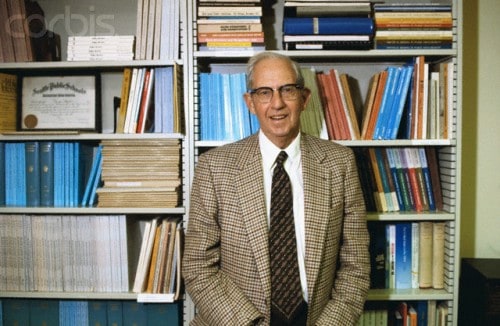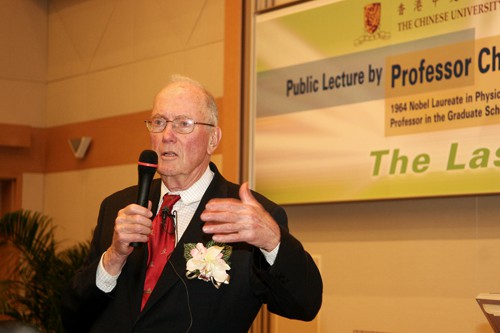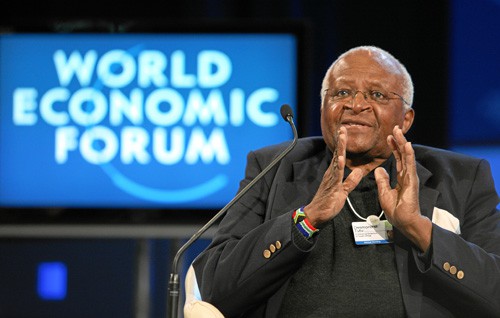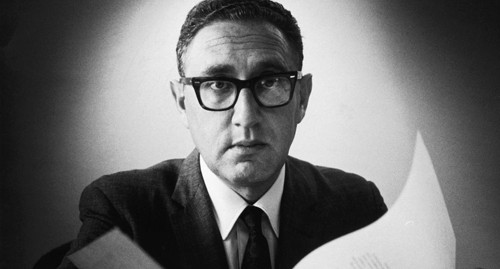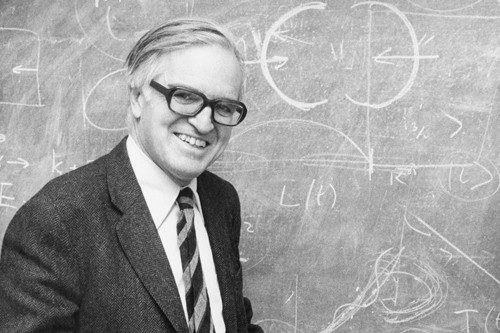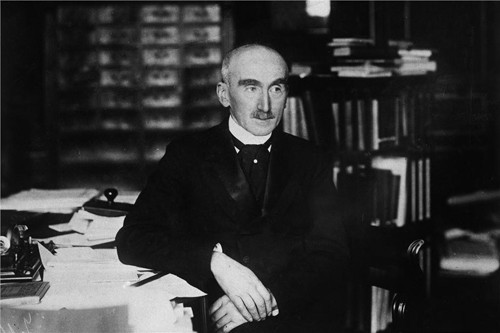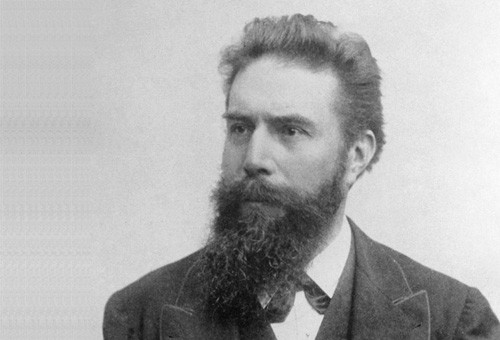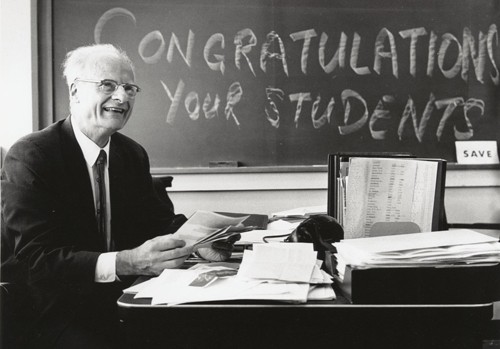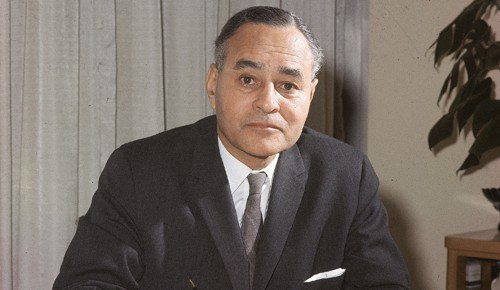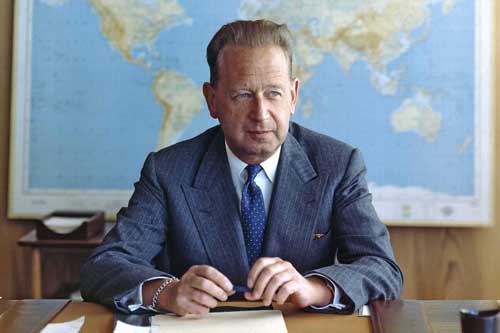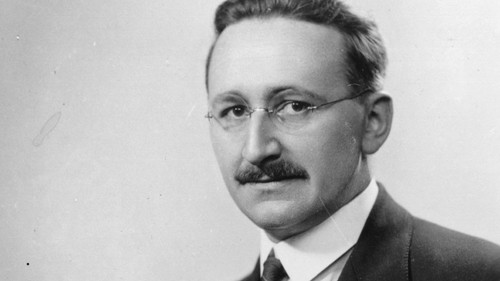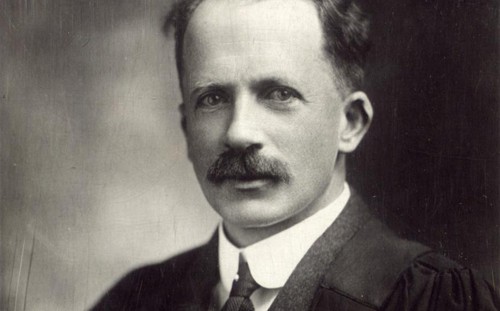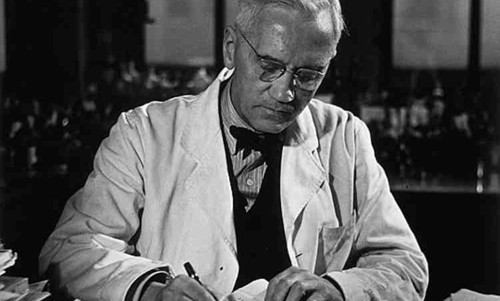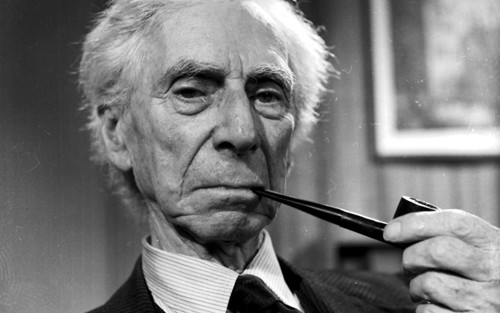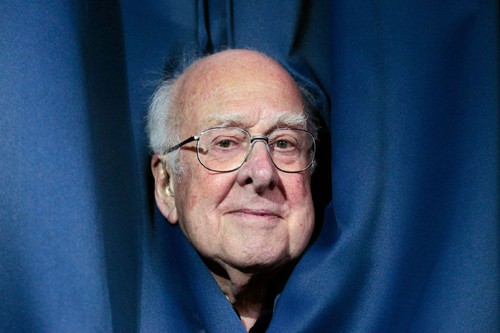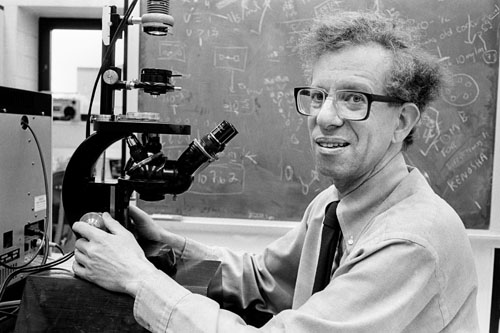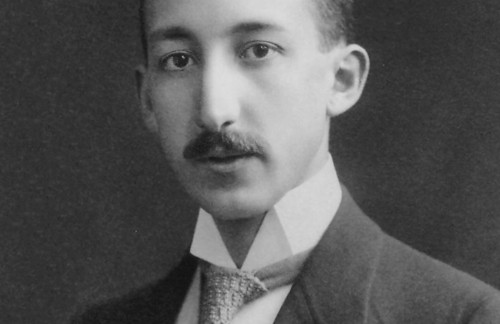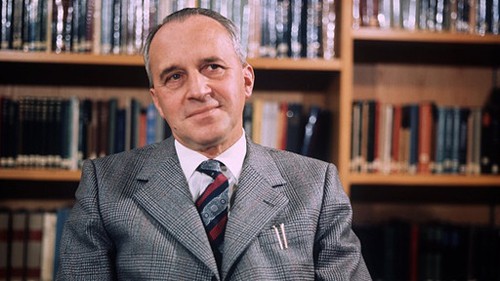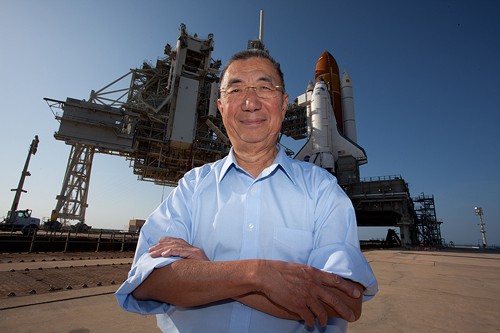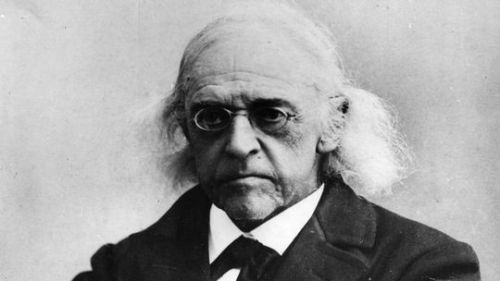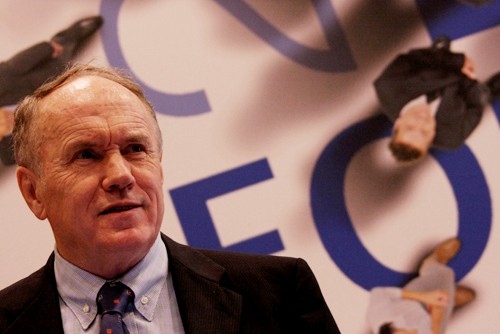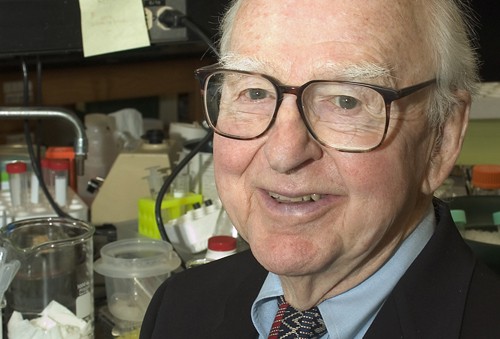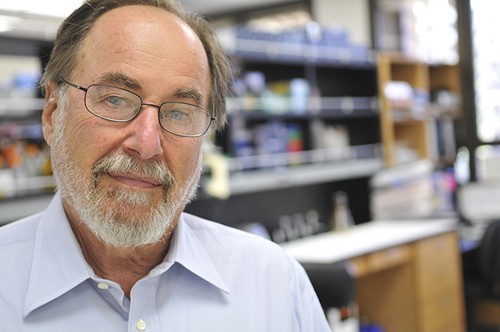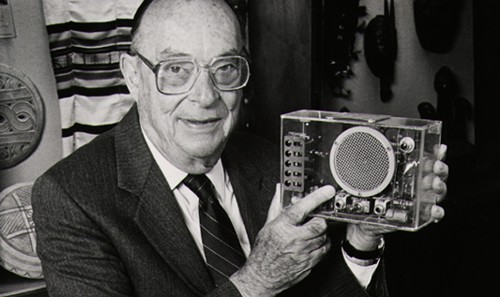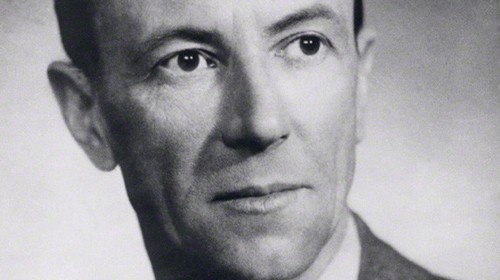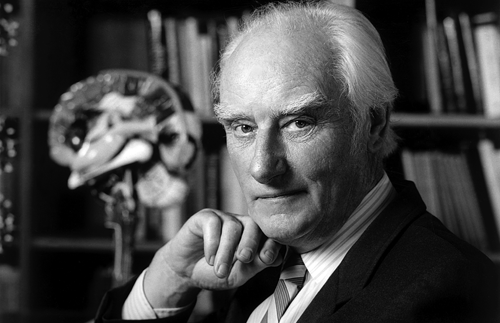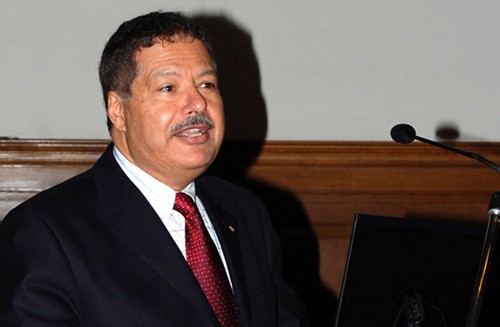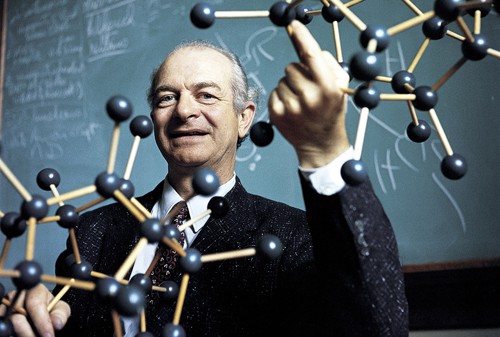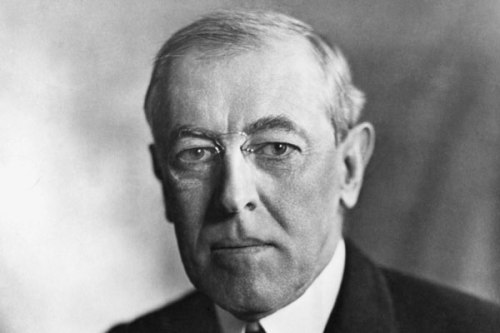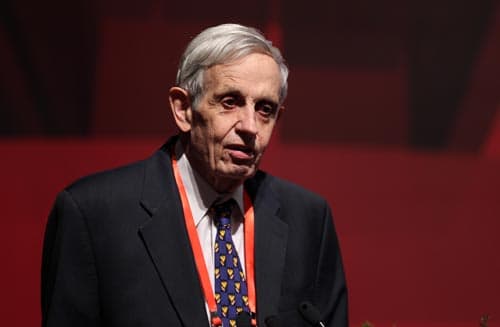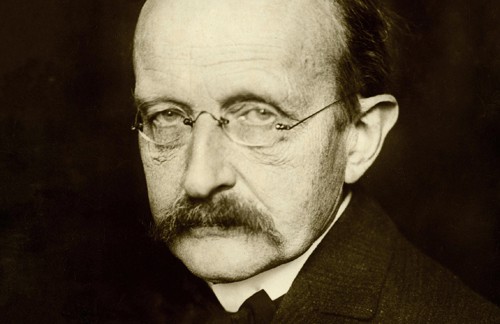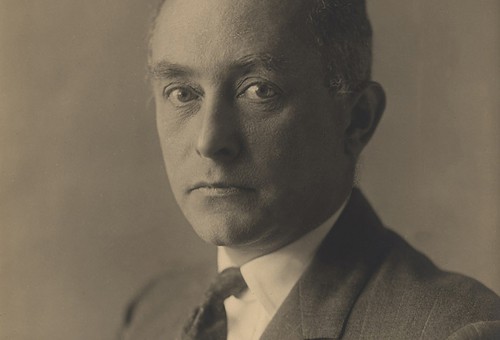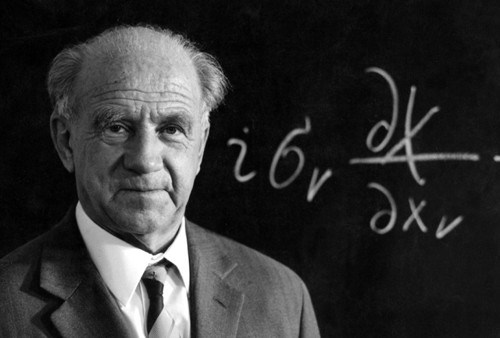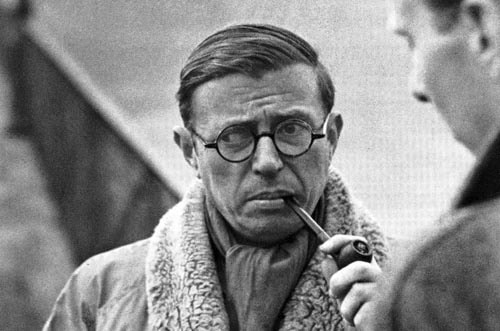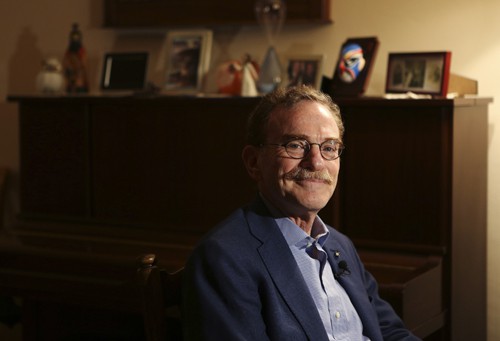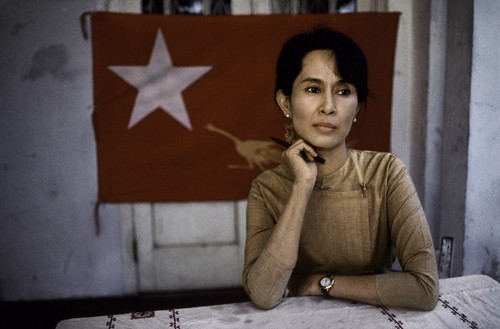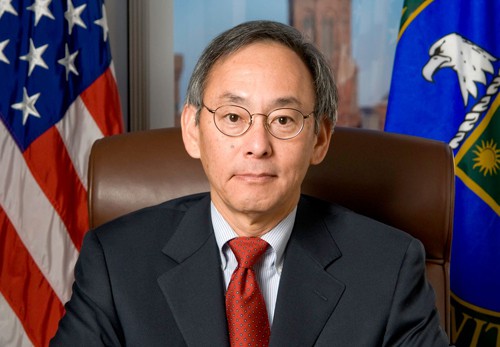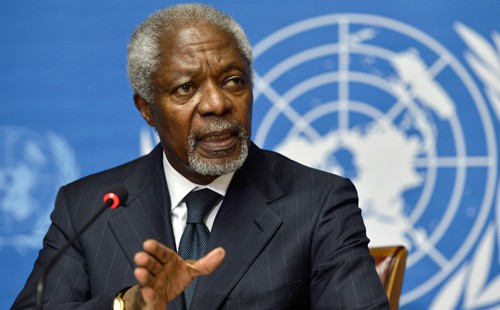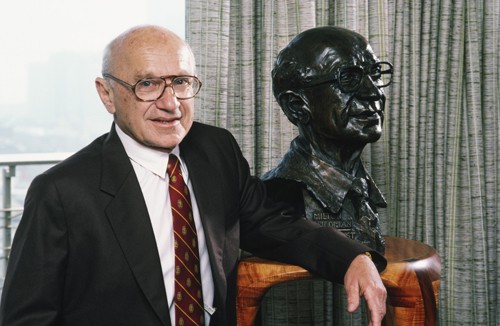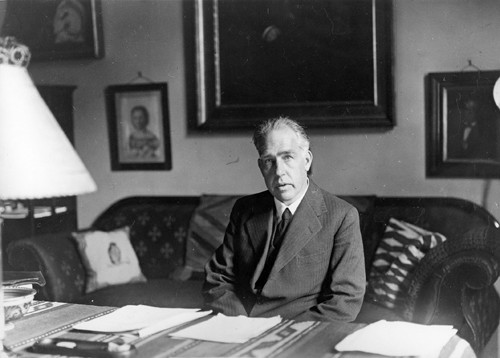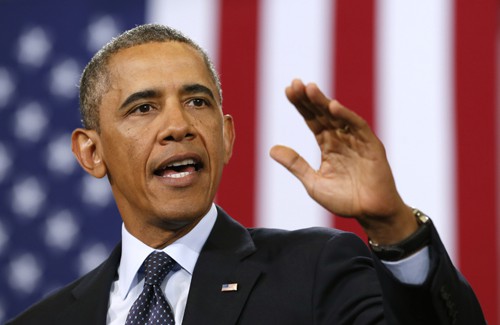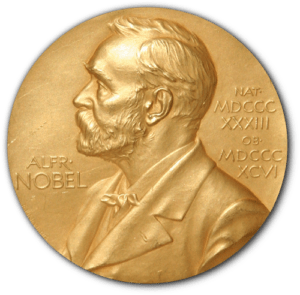 Choosing where to study is one of those life decisions that needs to be weighed and properly considered from all angles. When it comes to figuring out where to get a master’s degree, picking the right university becomes an even more complex dilemma. From prestige to possibilities, there are all sorts of factors to consider. It’s a commitment that can have lasting effects and shape students’ lives quite dramatically – as it could be the first step to future success in their fields, and even a Nobel Prize. Here, we look at the 50 universities with the most Nobel-winning affiliates in the world – from students to researchers and professors.
Choosing where to study is one of those life decisions that needs to be weighed and properly considered from all angles. When it comes to figuring out where to get a master’s degree, picking the right university becomes an even more complex dilemma. From prestige to possibilities, there are all sorts of factors to consider. It’s a commitment that can have lasting effects and shape students’ lives quite dramatically – as it could be the first step to future success in their fields, and even a Nobel Prize. Here, we look at the 50 universities with the most Nobel-winning affiliates in the world – from students to researchers and professors.
Please note: We’ve included both the official and unofficial counts for Nobel Prize winners affiliated with the different universities on this list; the former have been issued by the institutions themselves, while the latter – generally making use of broader sets of principles – are derived from other sources.
50. University of Washington – Seattle, Washington
Nobel winners: 12
The University of Washington, which was established in 1861, is well known for its excellent medical school, which is regarded as one of the top facilities of its kind worldwide. The University of Washington School of Medicine was established in 1946; according to U.S. News & World Report, it is the second best American medical school for primary care, and number nine for research. The institution is also known for its well-rated Foster School of Business. Celebrated, Nobel-winning economist George J. Stigler, who received his accolade in 1982, earned his BA from the university in 1931. Nobel Prize in Physiology or Medicine winner Martin Rodbell, who picked up his honor in 1994, was a University of Washington graduate, as were doctor George H. Hitchings (1988) and biologist Linda B. Buck (2004).
49. Duke University – Durham, North Carolina
Nobel winners: 12
Duke University was founded in 1838, when it was known as Brown’s Schoolhouse; now, according to the 2013 QS World University Rankings, it’s the 23rd best university in the world. That same year, the Times Higher Education World University Rankings placed Duke 17th worldwide. The college’s list of Nobel-winning graduates includes notable physicist Charles H. Townes, who received the honor in 1964. His pioneering quantum electronics research led to the development of the maser and the laser. In light of this achievement, Townes has been dubbed the “founding father of the laser.” Nobel-winning physicist Robert C. Richardson – who obtained his award in 1996 – is also a Duke graduate. The school’s Nobel-winning faculty affiliates have included economist Joseph E. Stiglitz, who won his prize in 2001, physician Peter Agre (2003) and Nigerian playwright and poet Wole Soykina (1986).
48. King’s College London – London, U.K.
Nobel winners: 12
The Duke of Wellington and King George IV founded King’s College London in 1829. Interestingly, the college is one of four institutions that claim to be England’s third ever university – the other three being University College London, Durham University and the University of London. One of the college’s most iconic Nobel-winning graduates is South African activist and retired archbishop Desmond Tutu, who obtained the prize in Peace in 1984. South African-born biophysicist and Nobel Prize in Chemistry winner Michael Levitt (2013) earned his B.Sc. at King’s College in 1967. Physicist Peter W. Higgs (2013) is also a King’s College London graduate, earning his Ph.D. there in 1954 before moving on to the University of Edinburgh. Peruvian-Spanish writer Mario Vargas Llosa (2010) also taught at the university between 1969 and 1970.
47. City University of New York – New York City, New York
Nobel winners: 13
The City University of New York dates back to 1847, when it was known as the Free Academy. In 1866, it became the College of the City of New York, and in 1961, this institution merged with other local colleges to become the City University of New York. Former U.S. Secretary of State Henry Kissinger – who won a Nobel Peace Prize in 1973 – studied accounting at City College of New York before he was called for duty in the U.S. Army in 1943. The school’s list of Nobel-winning graduates includes physicist Leon M. Lederman (1988), Physiology or Medicine winners Arthur Kornberg (1959), Julius Axelrod (1970) and Rosalyn Yalow (1977), Chemistry winner Herbert A. Hauptman (1985) and esteemed economists Kenneth J. Arrow (1972) and Robert J. Aumann (2005). Nobel-winning economist Harry M. Markowitz was honored in 1990 while working as a professor at City University of New York’s Baruch College.
46. University of Copenhagen – Copenhagen, Denmark
Nobel winners: 13
The University of Copenhagen is among the two oldest universities in Scandinavia, being first established in 1479 as a medieval university. In 2013, the Academic Ranking of World Universities listed the University of Copenhagen as Europe’s ninth best college. The school’s most famous Nobel-winning graduate is arguably renowned Danish physicist Niels Bohr (1922), who famously produced his namesake atomic model in 1913. However, Niels’ son and fellow Nobel-winning University of Copenhagen graduate Aage Bohr not only followed in his father’s footsteps when he obtained the honor in 1975, but also by returning to the university (in his case, as a professor). Faroe Islands-born physician and Nobel winner Niels Ryberg Finsen (1903) is also a University of Copenhagen graduate.
45. École Normale Supérieure – Paris, France
Nobel winners: 14
Paris’ École Normale Supérieure (ENS) was originally founded in 1794 as an alternative to the country’s conventional higher education offerings. The idea was to establish a school imbued with the spirit of the Enlightenment. ENS is divided into two primary departments: sciences and humanities. Former Nobel-winning graduates include iconic French philosophers Henri Bergson – who secured his prize in 1927 – and Jean-Paul Sartre, who famously turned the honor down in 1964. ENS also produced well-known economist and former University of California, Berkeley professor Gérard Debreu (1983) and experimental Irish playwright, novelist and Nobel winner Samuel Beckett (1969), who was a lecturer at the university. Nobel-winning former ENS students also include physicists Gabriel Lippmann (1908), Jean Baptiste Perrin (1926), Pierre-Gilles de Gennes (1991), Claude Cohen-Tannoudji (1997) and Albert Fert (2007).
44. University of Würzburg – Würzburg, Germany
Nobel winners: 14
In 1901, physicist and former University of Würzburg faculty member Wilhelm Conrad Röntgen made history as the first ever winner of the Nobel Prize in Physics. In 1895, Röntgen discovered X-rays – which are still often referred to as Röntgen rays in several languages. The distinguished University of Würzburg dates back to 1402, and is formally referred to as Julius-Maximilians-Universität Würzburg. The school’s Nobel-winning affiliates also include former student Karl Landsteiner, who is credited with identifying the chief blood types in 1900, and who won his award in Physiology or Medicine in 1930. Nobel Prize in Physics winner Ferdinand Braun (1909), whose work helped pave the way for the evolution of television and radio, also worked as an assistant to a professor at the University of Würzburg.
43. Goethe University Frankfurt – Frankfurt, Germany
Nobel winners: 14
Germany’s Goethe University Frankfurt, officially known as the Johann Wolfgang Goethe-Universität Frankfurt am Main, was founded in 1914. The school has had a reputation for being a liberal institution, and became the first university in the country to hire Jewish professors. During Nazi rule, however, the university suffered, as almost a third of its staff was dismissed. The Goethe University Frankfurt also played a significant role in the country’s historic 1968 student activist riots. On an academic front, the university is well known for its Institute for Social Research, which was established in 1924 and is the birthplace of the Frankfurt School of philosophical thought. The university’s list of Nobel-winning graduates includes noted physicist Hans Bethe (1967) and Physiology or Medicine winner Christiane Nüsslein-Volhard (1995). Nobel-winning physicists Max von Laue (1914), Otto Stern (1943) and Max Born (1954) all served as Goethe University Frankfurt faculty members.
42. University of California, Los Angeles – Los Angeles, California
Nobel winners: 15 (official 13)
The University of California, Los Angeles (UCLA) was founded in 1919 but dates back all the way to 1881 when it was – in another incarnation – the Los Angeles State Normal School. UCLA currently pulls in more applications for undergraduate programs than any other university in the nation and, in 2013, the QS World University Rankings awarded the school 40th place on its annual list. UCLA’s Nobel-winning former students include Chemistry winners Richard F. Heck (2010) and Glenn T. Seaborg (1951). Seaborg played a pivotal role in the development of the Periodic Table, and element seaborgium was named in his honor. Nobel-winning diplomat Ralph Bunche, who obtained his prize in 1950, is also a UCLA graduate. Bunche made history as the first African-American Nobel winner. Other UCLA-affiliated Nobel winners include former U.S. vice president Al Gore (2007), philosopher/logician Bertrand Russell (1950) and biologist Randy W. Schekman (2013).
41. Uppsala University – Uppsala, Sweden
Nobel winners: 15
Sweden’s oldest college Uppsala University was first established in 1477 as a studium generale, or medieval university. Since then, the highly regarded institution has been an important contributor to Swedish culture and national identity – from politics to music. The university’s list of Nobel-winning graduates includes diplomat and former UN Secretary-General Dag Hammarskjöld, who received the honor in 1961. The only UN Secretary-General to have died while still holding the aforementioned position, Hammarskjöld was awarded the prize posthumously – which has only ever happened three times. Other Uppsula University Nobel-winning graduates include poet Erik Axel Karlfeldt (1931), physicist Hannes Alfvén (1970) and Peace Prize winner Alva Myrdal (1982). Nobel-winning writer Pär Lagerkvist (1951) was also affiliated with the university.
40. University of Vienna – Vienna, Austria
Nobel winners: 15
Austria’s historic University of Vienna, which was founded in 1365, is the first university to be established in a German-speaking country. Physicist Erwin Schrödinger (who received a Nobel in 1933) and Physiology or Medicine winners Róbert Bárány (1914) and Karl Landsteiner (1930) are all University of Vienna graduates and laureates. Konrad Lorenz, who picked up a Nobel in 1973, studied at the college as well. He is credited as one of the pioneers of contemporary ethology. Influential, Nobel-winning economist Friedrich Hayek received his honor in 1974. He obtained doctorates in political science and law at the university and then returned to the school as an economics lecturer. Ill-fated, Nobel-winning German chemist Hans Fischer, who garnered his accolade in 1930, taught at the University of Vienna before moving on to the Technische Universität München. Interestingly, Fischer also has a crater on the Moon named after him.
39. Leiden University – Leiden, Netherlands
Nobel winners: 16
William, Prince of Orange established the Netherlands’ Leiden University in 1575 – which makes it the oldest college in the country’s history. In 2013, the Times Higher Education World University Rankings rated Leiden as the top university in Holland. Influential, Nobel-winning Dutch chemist Jacobus Henricus van ‘t Hoff, Jr. (1901), who is credited with pioneering the establishment of contemporary physical chemistry, studied there. The university’s list of Nobel-winning graduates also includes physicists Pieter Zeeman (1902), Johannes Diderik van der Waals (1910) and Nicolaas Bloembergen (1981), economist Jan Tinbergen (1969) and Peace Prize winners Tobias Asser (1911) and Gerrit Jan van Heuven Goedhart (1954). Iconic German physicist Albert Einstein (1921) was a researcher at the University of Leiden, and Italian physicist Enrico Fermi (1938) was a student there. In fact, Einstein found out that his now-famous theory of relativity had been approved while he was at Leiden.
38. Case Western Reserve University – Cleveland, Ohio
Nobel winners: 16
Case Western Reserve University was first established in 1826 as the Western Reserve College. The institution was eventually renamed Case Western Reserve University in 1967. Nobel-winning Scottish physiologist, biochemist and former Western Reserve University lecturer John James Rickard Macleod, who published his co-discovery of insulin in 1922, received his honor the following year. The school’s list of Nobel-winning graduates includes economist Edward C. Prescott (2004), Chemistry winner Paul Berg (1980), physicist Donald A. Glaser (1960) and Physiology or Medicine winner and magnetic resonance imaging pioneer Paul C. Lauterbur (2003). Nobel-winning physicists Albert A. Michelson and Frederick Reines respectively picked up their accolades in 1907 and 1995; both were Case Western faculty members. Michelson made history as the first U.S. scientist to win a sciences Nobel Prize, and Reines took charge of Case Western’s physics department in 1959, serving as its head until 1966.
37. Imperial College London – London, U.K.
Nobel winners: 16
Nobel-winning Scottish scientist and Imperial College London graduate Sir Alexander Fleming famously discovered penicillin in 1928, and later went on to obtain his prize in 1945. Fleming studied at St. Mary’s Hospital Medical School, which became part of the Imperial College London campus in 1988. He also went on to become a professor at the college. Today, Imperial College London’s South Kensington campus is home to The Sir Alexander Fleming Building, which is among the primary teaching facilities of the school’s medical college. Imperial College London was originally founded in 1907, with its Nobel-winning graduates including Chemistry winners Derek Barton and Geoffrey Wilkinson, who picked up their accolades in 1969 and 1973 respectively. Abdus Salam, who won a Nobel Prize in Physics in 1979, was a faculty member at the school, while Physiology or Medicine winner Andrew F. Huxley (1963) was a fellow of the college.
36. London School of Economics and Political Science – London, U.K.
Nobel winners: 17
Graham Wallas, Sidney and Beatrice Webb and Nobel-winning writer George Bernard Shaw established the London School of Economics and Political Science in 1895. Today, the college is highly rated nationally and globally, and well known for its strong social science programs. The school’s Nobel-winning former students include Peace Prize winner and former president of Costa Rica Oscar Arias Sánchez, who received the honor in 1987, and economists Sir Arthur Lewis (1979), Ronald H. Coase (1991), Leonid Hurwicz (2007) and Christopher A. Pissarides (2010). Celebrated Nobel-winning economists Sir John R. Hicks (1972), Amartya Sen (1998) and Paul Krugman (2008) all served as faculty members at the school. Shaw and iconic, Nobel-winning British writer Bertrand Russell (1950) were also London School of Economics and Political Science staff members.
35. University of Edinburgh – Edinburgh, U.K.
Nobel winners: 18
The University of Edinburgh was established in 1583, and according to the 2013 QS World University Rankings, it is the 17th best university in the world. The institution is known for its excellent arts and humanities programs, and for the pivotal role it played in shaping the Scottish city during the Enlightenment. Iconic English politician and Nobel Literature winner Sir Winston Churchill, who received his accolade in 1953, was the university’s rector from 1929 to 1932. Current emeritus professor Peter W. Higgs won the Nobel Prize in Physics in 2013 for his role in the discovery of the Higgs boson particle and was recommended for it by none other than Stephen Hawking. Physicist Max Born, who won his Nobel in 1954, and Physiology or Medicine winners Sir Alexander Fleming (1945) and Hermann J. Muller (1946) were also University of Edinburgh staff members.
34. University of Wisconsin-Madison – Madison, Wisconsin
Nobel winners: 19
The University of Wisconsin-Madison was founded in 1848. Since then, the highly regarded public school has built up a reputation of academic excellence and been described as one of America’s “public Ivies.” Wisconsin-Madison graduate and two-time Nobel winning physicist John Bardeen (1956, 1972) is seen as one of the most influential Americans of the 20th century. Nobel-winning Wisconsin-Madison students also include 2011 Peace Prize winner and president of Liberia Ellen Johnson Sirleaf, writer Saul Bellow (1976), Chemistry winner Alan G. MacDiarmid (2000) and biologist Günter Blobel (1999). Nobel-winning staff members include geneticist Howard M. Temin, who received the honor in 1975, molecular biologist Joshua Lederberg (1958) and biochemist Har Gobind Khorana (1968).
33. University of Freiburg – Freiburg im Breisgau, Germany
Nobel winners: 19 (official 10)
Germany’s University of Freiburg was established in 1457 and is well known for its humanities and natural and social sciences programs. Formally known as the Albert Ludwig University of Freiburg, the school is one of the top universities in Germany, as well as one of the country’s oldest colleges. Nobel-winning former students include 1953 Physiology or Medicine winner Hans Krebs, Chemistry winners George de Hevesy (1943), Adolf Windaus (1928) and Mario J. Molina (1995) and physicist J. Hans D. Jensen (1963). Krebs, Windaus and de Hevesy also served as staff members at the college. Extremely influential, 1974 Nobel Memorial Prize in Economic Sciences winner Friedrich Hayek was a professor at Freiburg from 1962 to 1968.
32. Technical University of Munich – Munich, Germany
Nobel winners: 20
First established in 1868, Germany’s Technical University of Munich is recognized as one of the top colleges in Europe; in 2013, the Academic Ranking of World Universities placed it 50th worldwide. The school’s Nobel-winning graduates include famed German writer Thomas Mann, who obtained his accolade in 1929, physicists Rudolf Mössbauer (1961) and Wolfgang Paul (1989), Chemistry winner Ernst Otto Fischer (1973) and Physiology or Medicine winner Erwin Neher (1991). Fischer and Mössbauer went on to rejoin the school as professors. Notable Nobel-winning chemist Hans Fischer, who won his prize in 1930, served as the school’s professor of organic chemistry from 1921 until his untimely demise at his own hands in 1945.
31. University of Michigan – Ann Arbor, Michigan
Nobel winners: 20
The University of Michigan was founded in Detroit in 1817, when it was known as the University of Michigania. Since 1837, the “public Ivy” school has been located in Ann Arbor. Today, it’s known for its research contributions and STEM fields, social sciences and humanities programs. The university also offers medical and law degrees, and in 2013, the Times Higher Education World University Rankings listed Michigan as the 18th best university in the world. Nobel-winning graduates include economist Robert J. Shiller (2013), Chemistry winner Richard Smalley (1996) and Physics winner Samuel C.C. Ting (1976). Ting currently works on the International Space Station’s Alpha Magnetic Spectrometer program. The school’s Nobel-winning staff members have included poet and writer Joseph Brodsky and physicist Wolfgang Pauli, who received their awards in 1987 and 1945 respectively.
30. University of California, San Diego – La Jolla, California
Nobel winners: 20
The University of California, San Diego was formally opened in 1960. Today, according to U.S. News & World Report, it is one of the top 10 public colleges in the nation. “Innovation is central to who we are and what we do. Here, students learn that knowledge isn’t just acquired in the classroom – life is their laboratory,” writes the university’s official website. Bruce A. Beutler, Nobel Prize in Physiology or Medicine winner in 2011, graduated from the University of California, San Diego in 1976 – when he was just 18 years old. Another of the university’s Nobel-winning graduates is Japanese scientist Susumu Tonegawa, who received the honor in 1987. Nobel-winning staff members include double winner Linus Pauling (1954, 1962), chemist Harold C. Urey (1934) and pioneering molecular biologist Francis Crick (1962).
29. University of Zürich – Zürich, Switzerland
Nobel winners: 21 (official 12)
Following its establishment in 1833, Switzerland’s University of Zürich has produced a handful of Nobel-winning graduates. The school’s most famous Nobel-winning former student is German physicist Albert Einstein, who garnered the honor in 1921. Other University of Zürich graduates who went on to win Nobel Prizes include physicist Wilhelm Conrad Röntgen (1901), chemist Alfred Werner (1913) and physiologist Walter Rudolf Hess (1949). Writers Theodor Mommsen and Carl Spitteler, who respectively won Nobels in 1902 and 1919, also studied at the school. Mommsen is among the most celebrated classicists of the 1800s. Pioneering American chemist and Nobel double-winner Linus Pauling (1954, 1962) took classes at the institution, while physicists Max von Laue (1914) and Erwin Schrödinger (1933) taught at the University of Zürich.
28. Carnegie Mellon University – Pittsburgh, Pennsylvania
Nobel winners: 21 (official 19)
Carnegie Mellon University was first established in 1900 as the Carnegie Technical Schools. In 1912, the institution was renamed the Carnegie Institute of Technology, which today serves as Carnegie Mellon’s engineering college. Carnegie Mellon has a reputation of excellence in economic studies and has produced a handful of Nobel-winning graduates. Among them is pioneering mathematician John Forbes Nash, Jr., who won his Nobel in 1994 and inspired the Academy Award-winning film A Beautiful Mind. In 2004, economists Edward C. Prescott and Finn E. Kydland shared their prizes; they also both earned their economics Ph.D.s at Carnegie Mellon before later returning to the school as professors. Noted economist Dale T. Mortensen, a 2010 joint Nobel winner, is also a Carnegie Mellon graduate.
27. Washington University in St. Louis – St. Louis, Missouri
Nobel winners: 22
Washington University in St. Louis was established in 1853 and named as a tribute to George Washington. U.S. News & World Report has ranked the university 14th in the nation on its annual Best Colleges list while, according to the Academic Ranking of World Universities, Washington University in St. Louis is the 30th best university in the world. The college is known for its strong social work, business, architecture and medicine programs. Acclaimed biochemist Edwin G. Krebs, who won a Nobel in 1992, earned his doctor of medicine degree at the university. Other Washington University graduates to win Nobels include biochemist Earl W. Sutherland, Jr. (1971) and microbiologist Daniel Nathans (1978).
26. University of Minnesota – Minneapolis/St. Paul, Minnesota
Nobel winners: 23
The University of Minnesota was founded in 1851, and it has since been recognized for its highly rated chemical engineering, pharmacology, psychology and economics programs. The school’s list of Nobel-winning graduates includes biologist and Peace Prize winner Norman Borlaug, dubbed “the father of the green revolution,” who won his accolade in 1970. Physicist Ernest Lawrence – perhaps best known for his pioneering work on the Manhattan Project – attained his Nobel in 1939. Lawrence was also a University of Minnesota graduate, as was Economic Sciences winner Lars Peter Hansen, who picked up his honor in 2013. Nobel-winning economists Milton Friedman (1976), George J. Stigler (1982), Edward C. Prescott (2004), Christopher A. Sims (2011), Thomas J. Sargent (2011) and Robert J. Shiller (2013) have all worked at the college. Physicist Arthur H. Compton (1927) and Nobel double-winner John Bardeen (1956, 1972) also served time as University of Minnesota staff members.
25. Rockefeller University – New York City, New York
Nobel winners: 24
Legendary tycoon John D. Rockefeller founded private New York institution Rockefeller University in 1901, when it was known as the Rockefeller Institute for Medical Research. The institution is renowned for its scientists’ advancements in the areas of biology and medicine, and it has the highest ratio of people involved in research to Nobel-winning affiliates worldwide. Nobel-winning biologist and former California Institute of Technology president David Baltimore, who received his accolade in 1975, is a Rockefeller graduate. Physiology or Medicine winner Gerald M. Edelman (1972) was a graduate fellow at Rockefeller University and was awarded a doctorate there in 1960. Molecular biologist Joshua Lederberg and geneticist Sir Paul M. Nurse, both former Rockefeller presidents, were also awarded Nobels in 1958 and 2001 respectively.
24. University of Illinois at Urbana-Champaign – Urbana/Champaign, Illinois
Nobel winners: 24
The University of Illinois at Urbana-Champaign was founded in 1867, and since then it has built a strong reputation for its excellent accounting, business, engineering, library and information science, chemistry and physics programs. Influential scientist and Nobel double-winner John Bardeen (1956, 1972) lectured at the University of Illinois at Urbana-Champaign from 1951 to 1975. In 1990, Bardeen made it onto Life’s “100 Most Influential Scientists of the Century” list. Former University of Illinois students who won Nobel Prizes in Physiology or Medicine include Rosalyn Yalow (1977), Edward G. Krebs (1992) and Phillip A. Sharp (1993). Fellow Illinois graduate and pioneering electrical engineer Jack Kilby, who made history as the inventor of the thermal printer and the handheld calculator, obtained his award in 2000.
23. University of Manchester – Manchester, U.K.
Nobel winners: 25 (official 21)
England’s University of Manchester was founded in 2004, when the University of Manchester Institute of Science and Technology merged with the Victoria University of Manchester. English physicist and university student Sir James Chadwick (1935) studied at the Victoria University of Manchester from 1908 to 1911 – famously under the tutelage of professor and “father of nuclear physics” Lord Ernest Rutherford (who also won a Nobel in 1908). The university’s Nobel-winning graduates include physicists J.J. Thomson (1906) and C. T. R. Wilson (1927), as well as chemistry winners Sir Robert Robinson (1947) and Michael Smith (1993). Iconic, Nobel-winning Danish scientist Niels Bohr (1922) spent time at the Victoria University of Manchester as a researcher, while Nobel-winning economists Sir John Hicks (1972) and Joseph E. Stiglitz (2001) served as university staff members.
22. University College London – London, U.K.
Nobel winners: 27 (official 21)
Highly regarded English institution University College London (UCL) was founded in 1826, as London University. Since then, it has ranked as one of the top universities globally, and has a strong reputation for arts and humanities, medicine and engineering. Highly influential, Nobel-winning molecular biologist Francis Crick, who obtained his award in 1962, earned his B.Sc. at the university. The Francis Crick Institute – which is part-owned by UCL – was founded in his honor in 2010. Nobel-winning UCL graduates include Physics winners Sir Owen Willans Richardson (1928) and Charles K. Kao (2009), Physiology or Medicine winners Sir Bernard Katz (1970) and Sir Martin J. Evans (2007) and Chemistry winner Jaroslav Heyrovský (1959). Influential, Nobel-winning German chemist Otto Hahn, who obtained his accolade in 1944, became a UCL staff member in 1904.
21. University of Pennsylvania – Philadelphia, Pennsylvania
Nobel winners: 29 (official 28)
Exclusive Ivy League school the University of Pennsylvania was first established in 1740. In 2013, the QS World University Rankings rated it 13th worldwide and U.S. News & World Report placed the university seventh in the nation. Nobel-winning Egyptian chemist and “father of femtochemistry” Ahmed H. Zewail, who won his prize in 1999, earned his Ph.D. at the University of Pennsylvania. Physiology or Medicine Winners Gerald M. Edelman (1972), Michael S. Brown (1985) and Stanley B. Prusiner (1997) are also graduates of the university. Economists and Nobel winners Thomas J. Sargent (2011), Edward C. Prescott (2004), Edmund S. Phelps (2006) and Robert A. Mundell (1999) have served as University of Pennsylvania staff members.
20. ETH Zürich – Zürich, Switzerland
Nobel Winners: 31 (official 29)
Swiss institution ETH Zürich, which opened in 1855, is an internationally acclaimed engineering and technology university that also specializes in math and science. According to the Academic Ranking of World Universities, the QS World University Rankings and the Times Higher Education World University Rankings, it’s one of continental Europe’s top colleges. The university’s most famous Nobel winner is undoubtedly German-born physicist Albert Einstein (1921), who also went on to work at the college. The university’s esteemed Nobel-winning graduates include Chemistry winners Richard R. Ernst (1991) and Fritz Haber (1918), while ETH Zürich professors that went on to win Nobel Prizes include Leopold Ružička (1939), Wolfgang Pauli (1945), Vladimir Prelog (1975) and Kurt Wüthrich (2002).
19. California Institute of Technology – Pasadena, California
Nobel winners: 33 (official 31)
Local entrepreneur and political figure Amos G. Throop founded Throop University in 1891; the school was eventually dubbed the California Institute of Technology (Caltech) in 1921. The university specializes in engineering, math, computer and earth sciences, biology and chemistry. Caltech graduate Linus Pauling, who is described as “one of the most influential scientists of the 20th century” by the National Academy of Sciences, is still the only laureate to win two individual Nobel Prizes (1954, 1962). Pioneering physicists and Nobel winners Robert A. Millikan (1923), Richard P. Feynman (1965) and Murray Gell-Mann (1969) and biologist David Baltimore (1975) have all served as staff at Caltech. Several graduates have also received a Nobel Prize: physicists Carl D. Anderson (1936), William B. Shockley (1956), James Rainwater (1975) and Douglas D. Osheroff (1996), Chemistry winner Edwin M. McMillan (1951) and economist Vernon L. Smith (2002).
18. New York University – New York City, New York
Nobel winners: 35 (official 4)
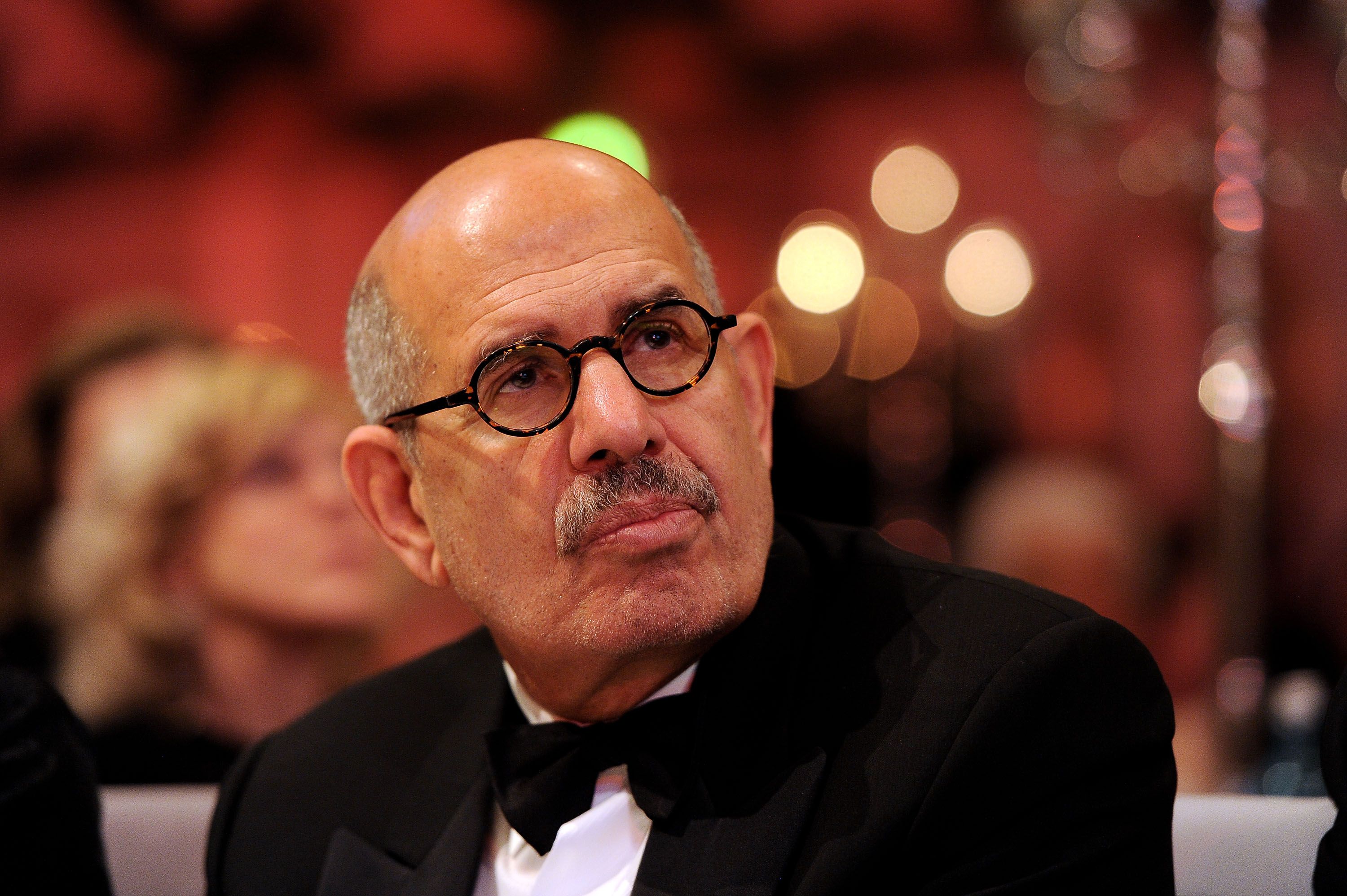
After being established in 1831 by Swiss-born linguist and former U.S. Secretary of the Treasury Albert Gallatin, New York University (NYU) has grown to become one of America’s biggest private colleges. It is perhaps best known for its highly ranked Stern School of Business, but is also popular with social science and visual and performing arts students. In 2011, economist and NYU professor Thomas J. Sargent shared a Nobel Economics Prize with Princeton professor Christopher A. Sims. Several NYU students have also gone on to achieve success: physicist Frederick Reines (1995), Physiology or Medicine winners Eric R. Kandel (2000), Julius Axelrod (1970) and Gertrude B. Elion (1988) and Nobel Peace Prize winners Elihu Root (1912) and Mohamed ElBaradei (2005) among others. ElBaradei was famously installed as Egypt’s acting vice-president after the 2013 military coup and also played a key role in the country’s 2011 revolution.
17. Ludwig Maximilian University of Munich – Munich, Germany
Nobel winners: 35 (official 13)
German public university and research facility Ludwig Maximilian University of Munich (LMU) was established in Munich in 1472, when it was known as the University of Ingolstadt. The university endured Germany’s National Socialist rule and was famously the base of defiant anti-Nazi resistance group White Rose. One of the university’s most famous Nobel-winning students is Max Planck (1918), who is credited with inventing quantum theory. Other distinguished Nobel physicists such as Max von Laue (1914), Gustav Hertz (1925), Werner Heisenberg (1932), Wolfgang Pauli (1945), Hans Bethe (1967) and Gerhard Ertl (2007, in Chemistry) also graduated from LMU. Nobel-winning writer Thomas Mann (1929) and influential Chemistry winner Otto Hahn (1944), who has been described as “the father of nuclear chemistry,” did too.
16. Johns Hopkins University – Baltimore, Maryland
Nobel winners: 36
Johns Hopkins University played a huge role in shaping the idea of the contemporary American research university. The institution, which was established in Baltimore in 1876, has grown to include four Maryland campuses, as well as locations in Washington, D.C., Italy, China and Singapore. Thanks to the iconic Johns Hopkins Medical Center, the university is famous for its contributions to the field of medicine, but it also excels in science and engineering research and development. Nobel-winning graduates include former U.S. president Woodrow Wilson (1919), Physiology or Medicine winners Thomas H. Morgan (1933) and Richard Axel (2004) and Chemistry winner Peter Agre (2003). Several staff members have also been recognized, including physicists James Franck (1925) and Adam G. Riess (2011) and Nobel Peace Prize-winning lecturer Nicholas Murray Butler (1931).
15. Princeton University – Princeton, New Jersey
Nobel winners: 37
Princeton University was first established in 1746 as the University of New Jersey. Today, the exclusive Ivy League research institution is one of the world’s richest universities, and it has also been ranked as the top university in America by U.S. News & World Report. Princeton graduate and mathematician John Forbes Nash, Jr., whose work has influenced fields including economics, computing, artificial intelligence and evolutionary biology, became a laureate in 1994. Nobel-winning former U.S. president Woodrow Wilson (1919) attended Princeton, later serving as a professor and then being made president of the university in 1902. Notable laureate graduates from Princeton include Economic Sciences winner Gary S. Becker (1992) and physicists Arthur H. Compton (1927), Richard P. Feynman (1965) and John Bardeen (1956, 1972). Bardeen is the only individual to win two Physics Nobel Prizes.
14. Humboldt University of Berlin – Berlin, Germany
Nobel winners: 40 (official 29)
The Humboldt University of Berlin was first established in 1810 as the University of Berlin. The institution adopted the name Humboldt in 1949, as a tribute to founder Wilhelm von Humboldt and his sibling Alexander. Humboldt suffered during Germany’s Nazi-led period, but today is recognized as one of the top universities in the country. Nobel-winning physicist Max Planck (1918) studied and taught at Humboldt, as did recipients Max von Laue (1914), Walther Bothe (1954) and James Franck (1925), with even trailblazer Albert Einstein (1921) being a professor there. Several students have made the transition from graduate to laureate, including physicist Gustav Ludwig Hertz (1925), chemist Fritz Haber (1918) and physiologist Otto Heinrich Warburg (1931).
13. Heidelberg University – Heidelberg, Germany
Nobel winners: 41 (official 32)
As Germany’s earliest university, Heidelberg University has been through a lot since it was first established in 1386 – from the Nazis to Germany’s seventies’ left-wing student activism. It has a distinct focus on research, and has been ranked as one of the top institutions of its kind throughout the whole of Europe. Nobel-winning physicist and father of quantum mechanics Max Born (1954) studied at Heidelberg University in 1902. Swiss poet Carl Spitteler (1919), Nobel Peace Prize recipients Auguste Beernaert (1909) and Albert Gobat (1902), Chemistry winner Fritz Haber (1918) and physiologist Albrecht Kossel (1910) are all Heidelberg University graduates. The university’s former staff includes two Nobel laureates: physiologist Bert Sakmann (1991) and virologist Harald zur Hausen (2008).
12. Cornell University – Ithaca, New York
Nobel winners: 43 (official 41)
Cornell University, which was established in 1865, is an exclusive Ivy League institution that features acclaimed engineering, architecture, business, human ecology and hotel administration programs among others. Cytogeneticist and laureate Barbara McClintock (1983) earned a Ph.D. in botany here. Cornell also has a strong literary pedigree: graduates Pearl Buck (1938) and Toni Morrison (1993) both went on to win the Nobel Prize in Literature. Distinguished writers Octavio Paz (1990) and Wole Soyinka (1986), economist Amartya Sen (1998) and Nobel Peace Prize winner Norman Borlaug (1970) have all served as staff members at Cornell. Many other students also went on to make the Nobel grade, including physicists Douglas D. Osheroff (1996) and Isidor Isaac Rabi (1944), economic historian Robert W. Fogel (1993) and Nobel Peace Prize winner John R. Mott (1946).
11. University of Göttingen – Göttingen, Germany
Nobel winners: 46 (official 44)
British monarch King George II founded Germany’s University of Göttingen in 1734. Today, it is recognized as one of the top universities in Germany and has earned Göttingen a strong reputation as a student town. Influential Nobel-winning physicist Werner Heisenberg (1932) studied physics under Max Born at Göttingen, earning his habilitation – highest academic honors – in 1924. Göttingen graduates that became laureates range from physicists Maria Goeppert Mayer (1963) and Max von Laue (1914) to Chemistry winners Irving Langmuir (1932) and Norman Haworth (1937) and Physiology or Medicine winners Robert Koch (1905) and Ilya Mechnikov (1908). Quantum physics pioneers and Nobel winners Wolfgang Pauli (1945), Max Planck (1918) and Max Born (1954) all served as staff members at the University, as did physical chemist Walther Nernst (1920) and physicist James Franck (1925).
10. University of Paris – Paris, France
Nobel winners: 51
The University of Paris is one of Europe’s oldest universities, being founded in the 12th century. Historically known as the Sorbonne, the college was split into 13 independent institutions in 1970. However, even though it doesn’t exist anymore as a single entity, the University of Paris is affiliated with 51 Nobel Prize winners. Famous laureates include physicists Pierre-Gilles de Gennes (1991), Georges Charpak (1992), Claude Cohen-Tannoudji (1997), Albert Fert (2007) and Serge Haroche (2012), economists Gérard Debreu (1983) and Maurice Allais (1988), virologist Luc Montagnier (2008), iconic French philosopher Jean-Paul Sartre (1964) and pioneering scientist Marie Curie (1903, 1911), the first and only multiple female winner. Sartre famously turned his Nobel Prize down, explaining, “The writer must… refuse to let himself be transformed into an institution.”
9. Yale University – New Haven, Connecticut
Nobel winners: 52 (official 25)
Exclusive Ivy League institution Yale University was first established in New Haven, Connecticut in 1701. The college, originally known as the Collegiate School, was founded by clergymen as a facility to train local leaders and priests. Yale’s list of Nobel Prize-winning graduates is comprised of distinguished individuals from several fields: physicists Ernest Lawrence (1939) and Murray Gell-Mann (1969), Chemistry winners John B. Fenn (2002) and Brian K. Kobilka (2012), “father of modern vaccines” John F. Enders (1954), biologist Joshua Lederberg (1958), noted economist Paul Krugman (2008) and writer Sinclair Lewis (1930), the first American-born individual to win the Nobel Prize in Literature. In 2013, highly influential Yale University professor Robert J. Shiller was awarded the Nobel Prize in Economics, while James E. Rothman, Yale’s Department of Cell Biology professor and chair, was honored in the Physiology or Medicine category.
8. Stanford University – Stanford, California
Nobel winners: 58 (official 27)
Stanford University, which opened in 1891, was founded by railroad tycoon and ex-politician Leland Stanford and his wife Jane. The Stanfords met with Charles W. Eliot, president of Harvard University at the time, to work out the financial cost of replicating Harvard in California. Stanford’s Nobel-winning graduates include economist Alvin E. Roth (2012), Chemistry winners Roger D. Kornberg (2006), physicists Carl Wieman and Eric A. Cornell (jointly in 2001), economist John C. Harsanyi (1994) and biologist Randy W. Schekman (2013). In 1972, former Stanford professor Kenneth J. Arrow became the youngest laureate in Economic Sciences at the age of 51 – a record that still stands today. In 2013, Thomas C. Südhof – who has been called “a biomedical exceptionalist” – received the Nobel Prize in Physiology or Medicine. That year, current Stanford professor Michael Levitt also shared the Nobel Prize in Chemistry for his role in “the development of multi-scale models for complex chemical systems.”
7. University of Oxford – Oxford, U.K.
Nobel winners: 58 (official 51)
According to historians, the establishment of prestigious English institution the University of Oxford can be traced as far back as 1096. “As the oldest university in the English-speaking world, Oxford is a unique and historic institution,” writes the university’s official website. Many of Oxford’s Nobel-winning graduates are familiar names: writers T.S. Eliot (1948) and William Golding (1983), influential economist Sir John R. Hicks (1972), penicillin co-developer Sir Howard Florey (1945), neurophysiologist Sir John Eccles (1963), biologist Sir John B. Gurdon (2012), politician Lester Bowles Pearson (1957) and iconic Burmese opposition prisoner Aung San Suu Kyi (1991). Acclaimed Irish poet Seamus Heaney (1995) lectured at Oxford between 1989 and 1994, while chemist and peace activist Linus Pauling (1954, 1962) was a visiting lecturer there in the 1940s.
6. University of California, Berkeley – Berkeley, California
Nobel winners: 69 (official 61)
University of California, Berkeley was founded in 1868, when Oakland’s Agricultural, Mining and Mechanical Arts College joined forces with the College of California, and it’s now the University of California educational system’s oldest institution. Students at Berkeley earned a reputation for political activism in the sixties after their opposition to the Vietnam War, but the college is affiliated with some intellectual heavyweights too. Its Nobel Prize recipients range from physicists Willis E. Lamb (1955) and Steven Chu (1997) to Chemistry winners Harold C. Urey (1934) and William F. Giauque (1949), economist Daniel Kahneman (2002) and Physiology or Medicine winners Selman A. Waksman (1952) and Andrew Z. Fire (2006). In 2013, Chu, who served as Secretary of Energy for four years under U.S. president and Nobel Peace Prize winner Barack Obama, returned to Berkeley as a professor of physics and molecular cell physiology. Alumni Libby, Kahneman and Giauque also became staff members.
5. Massachusetts Institute of Technology – Cambridge, Massachusetts
Nobel winners: 83 (official 78)
The Massachusetts Institute of Technology (MIT) was established in 1861 and is well known for its pioneering contributions to engineering and the physical sciences. MIT has also spawned numerous successful entrepreneurs, companies and inventions. The school is extremely selective, and traditionally it prioritizes engineering, technological and scientific investigation. Recently, it has also excelled in economics, linguistics, management and biology. Affiliated Nobel laureates include economists Paul Krugman (2008) and Robert J. Shiller (2013), diplomat Kofi Annan (2001), pioneering chemists Robert B. Woodward (1965) and Elias James Corey, Jr. (1990), physicists William Shockley (1956), Richard P. Feynman (1965), Murray Gell-Man (1969) and Robert B. Laughlin (1998) and joint winners Carl E. Wieman and Eric A. Cornell (2001). Ghanaian Annan, who earned a Master of Science degree at MIT, went on to become United Nations Secretary-General, a post he held from 1997 until 2006.
4. University of Chicago – Chicago, Illinois
Nobel winners: 89
Buoyed by a grant from John D. Rockefeller and a donation of land by department store entrepreneur Marshall Field, the American Baptist Education Society established the University of Chicago in 1890. Since then it has been influential in economics, sociology, law, literary criticism and physics. Their roll call of graduate Nobel winners features economists Milton Friedman (1976), George J. Stigler (1982), Harry M. Markowitz (1990) and Gary S. Becker (1992), and physicists Luis Alvarez (1968) and Jack Steinberger (1988). According to The Economist, Friedman is “the most influential economist of the second half of the 20th century … possibly of all of it.” U.S. president and Nobel Peace Prize winner Barack Obama lectured in the law school at the university between 1992 and 2004. Nobel Prize-winning writers Bertrand Russell (1950) and J.M. Coetzee (2003) also both served as professors.
3. University of Cambridge – Cambridge, U.K.
Nobel winners: 90
The University of Cambridge actually has its origins in a rival institution, as it is said to have been founded in 1209 by academics that left the University of Oxford following a disagreement. Cambridge is famous for its contributions to mathematics and science, due largely to the achievement of star students such as Sir Isaac Newton, James Clerk Maxwell, Lord Kelvin, Sir Francis Bacon and Nobel winner Lord Rayleigh (1904). The university’s Nobel pedigree extends far and wide: it includes physicists Lord Ernest Rutherford (1908), Niels Bohr (1922) and Abdus Salam (1979), writers Bertrand Russell (1950) and Patrick White (1973), economist Amartya Sen (1998), Peace Prize winner Sir Austen Chamberlain (1925) and Chemistry double winner Frederick Sanger (1958, 1980). Salam is the first Muslim scientist and the only Pakistani winner, while Sanger is only one of two Nobel recipients to win twice in the same field.
2. Columbia University – New York City, New York
Nobel winners: 101 (official 82)
After its establishment in 1754 as King’s College, Columbia University became the fifth university in U.S. history and the first to offer a doctorate of medicine. The exclusive Ivy League university has produced Founding Fathers, Supreme Court Justices, Oscar winners, billionaires and world leaders. Nobel-winning graduates include current U.S. president Barack Obama (2009), physicists Isidor Isaac Rabi (1944) and Julian Schwinger (1965), chemists Herbert A. Hauptman (1985) and Irving Langmuir (1932), biologist Richard Axel (2004) and economists Alvin E. Roth (2012) and Milton Friedman (1976). Former U.S. vice-president Al Gore (Peace Prize winner in 2007) lectured at the college in 2001. Nobel laureate Joseph E. Stiglitz (2001), who once served as World Bank chief economist, is a professor there. Former staff members that have also been recognized include groundbreaking German physicist Max Planck (1918) and writers Gabriela Mistral (1945), Nadine Gordimer (1991) and Mario Vargas Llosa (2010).
1. Harvard University – Cambridge, Massachusetts
Nobel winners: 151 (official 47)
Harvard University is widely regarded as one of the top universities in the world. The exclusive Ivy League college was founded in 1636 as New College, then renamed after philanthropist John Harvard in 1639, and is now renowned for its medical and law schools. Nobel winner T.S. Eliot (1948) spent years at Harvard – first studying philosophy from 1906, then working as a philosophy assistant from 1909 before returning as a student again in 1911. Nobel Peace Prize graduates include key political figures such as Theodore Roosevelt (1906), Ralph Bunche (1950), Henry Kissinger (1973), Al Gore (2007) and Barack Obama (2009). Many of Harvard’s staff has also won awards: Chemistry winner Martin Karplus (2013), writers J.M. Coetzee (2003), Nadine Gordimer (1991), Seamus Heaney (1995) and Mario Vargas Llosa (2010), economists Alvin E. Roth (2012), Amartya Sen (1998) and Kenneth J. Arrow (1972) and Physiology or Medicine winner Linda B. Buck (2004).

